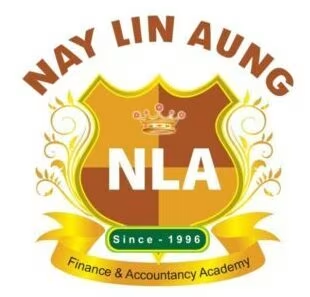Finance & Accounting နယ်ပယ်တွင် Professional အဖြစ်ရော Academic ဘွဲ့ပါရရှိမည့်အစီအစဉ်
Author: Myanmar Designer
ACCAဆိုသည်မှာ
ACCAဆိုသည်မှာ
ယနေ့ကမ္ဘာကြီးသည်နည်းပညာရပ်များထွန်းကားလာသည်နှင့်အမျှ ကုန်စည်နှင့် ဝန်ဆောင်မှုရောင်းဝယ်ရေးနှင့်ကုန်ချောထုတ်လုပ်မှုလုပ်ငန်းများ၏ပြိုင်ဆိုင်မှုများက လည်းပြင်းထန်လာနေလျှက်ရှိရာဘဏ္ဍရေးစီမံခန့်ခွဲမှုအရေး ကြီးပုံကိုလည်းမျက်ဝါးထင်ထင်တွေ့မြင်လာရပြီဖြစ်သည်။ စီးပွားရေး ၏အောင်မြင်မှုသည် Idea နှင့် စွမ်းဆောင်မှုများပေါ်တွင်မူတည်ဘဏ္ဍာရေး စီမံခန့်ခွဲမှုအခန်းကဏ္ဍကတော့လုပ်ငန်းတိုင်း အတွက်အသက်သွေးကြောသဖွယ်ကဲ့သို့အရေးပါလှပါသည်။ ထို့ကြောင့်စီပွားရေးလုပ်ငန်းများ၏ပရောဖက်ရှင်နယ်စာရင်းကိုင်လိုအပ်ချက်သည်မြင့်မားသည်ထက်မြင့်မားလာရာ စာရင်းကိုင်ပညာရပ်များသင်ကြားလေ့လာသူများလည်းတိုးတက်များပြားလာခဲ့သည်။
ကမ္ဘာပေါ်တွင်ရှိသည့်အကြီးကျယ်ဆုံးနှင့်အအောင်မြင်ဆုံး Global professional Accounting body တစ်ခုဖြစ်သည့် Association of Chartered Certified Accountants(ACCA)သည်အင်္ဂလန်နိုင်ငံ လန်ဒန်မြို့တွင်အခြေစိုက်ဖွင့်လှစ်ထားသောဘုရင့်အသိအမှတ်ပြုတော်ဝင်စာရင်းပညာရှင်အဖွဲ့အစည်း ကြီးတစ်ခုဖြစ်ပြီးကမ္ဘာအရပ်ရပ်ရှိကျောင်းသားကျောင်းသူများနှင့်memberဝင်များအားစာရင်းအင်းဆိုင် ရာပညာရပ်များသင်ကြားဖြန့်ဝေခြင်း၊စာမေးပွဲများစစ်ဆေးခြင်း၊Professional လက်မှတ် Certificate Diploma များထုတ်ပေးခြင်းများ ပြုလုပ်ပေးလျှက်ရှိသည့်အဖွဲ့အစည်းကြီးဖြစ်ပါသည်။ နိုင်ငံပေါင်း၁၈၀တွင် ACCA ဘာသာရပ်များအား သင်ကြားလေ့လာလျှက်ရှိသည့် ကျောင်းသားကျောင်းသူပေါင်း၄၃၆,၀၀၀ဦး၊memberဝင်ပေါင်း၁၇၀, ၀၀၀ဦးရှိပြီးCenterတစ်ခု အပါအဝင်ရုံးခွဲပေါင်း၉၁ရုံးဖွင့်လှစ်၍ပညာဝန်ဆောင်မှုများကိုဆောင်ရွက် လျက်ရှိသည်။ACCA၏Headquartersကိုလန်ဒန်မြို့တွင်ဖွင့်လှစ်ထားရှိပြီးစကော့တလန်နိုင်ငံ Glosgowမြို့တွင် principal administrative office ကိုဖွင့်လှစ်ထားသည်။ ယခုအခါတွင်ACCA ဘာသာရပ်သင်ရိုးညွန်းတန်းများအောင်မြင်ပြီးဆုံးသည့်ကျောင်းသားကျောင်းသူ ၈၅၀၀ကျော်ခန့်သည် ကမ္ဘာအရပ်ရပ်ရှိဘိဇနက်လုပ်ငန်းကြီးများတွင်ဝင်ရောက်လုပ်နေကြောင်းသိရသည်။
ACCA၏သမိုင်းအစ
ACCA(Association of Chartered Certified Accountant)ဟူသော ကမ္ဘာလုံးချီစာရင်း အင်းဆိုင်ရာပညာရပ်အဖွဲ့အစည်းကြီးကို၁၉၀၄ခုနှစ်တွင်အင်္ဂလန်နိုင်ငံလန်ဒန်မြို့၌စာရင်းကိုင် ပညာရှင်၈ယောက်ဖြင့်စတင်သန္ဓေတည်ဖွဲ့စည်းတည်ထောင်ခဲ့ရာမူလစတည်ထောင်စဉ်က London Association Accountants ဟူသည့်အမည်အသုံးပြုခဲ့ပြီး၁၉၃၀ခုနှစ်တွင် အင်္ဂလန်နိုင်ငံရှိကုမ္ပဏီများ ၏Auditလုပ်ငန်းများကိုလုပ်ကိုင်ခွင့်ရရှိခဲ့သည်။ ၁၉၃၃ခုနှစ်တွင် London Association of Certified Accountant အမည်သို့ပြောင်းလဲခဲ့ပြီး၁၉၃၉ခုနှစ်အရောက်တွင်စကော့တလန်အခြေစိုက်စာရင်းကိုင် ဘိုးအေအဖွဲ့အစည်းကြီးတစ်ခုဖြစ်သည့် Corporation of Accountant (၁၈၉၁ခုနှစ်တွင်တည်ထောင်) နှင့်ပူးပေါင်း၍ Association of Certified and Corporate Accountant ဟူသည့်အမည်သို့ပြောင်းလဲ ခဲ့သည်။၁၉၄၁ခုနှစ် ဒုတိယကမ္ဘာစစ်ကြီးအတွင်းတွင် Institution of Certified Public Accountants နှင့်ထပ်မံပူးပေါင်းခဲ့ပြီး၁၉၇၁ခုနှစ်တွင် Association of Certified and Corporate Accountant အမည် အစား Association of Certified Accountant အမည်သို့ပြောင်းလဲသတ်မှတ်ခဲ့ပြီးနောက်၁၉၇၄ခုနှစ် အရောက်တွင်ဗြိတိန်ဘုရင်မကြီးအဲလီဇဘက် (၂)၏ Royal Charter အဖြစ်သူကောင်းပြုခြင်းခံခဲ့ရပြီး ACCA (Association of Chartered Certified Accountant)ဟုပြောင်းလဲခေါ်ဝေါ်သုံးစွဲခဲ့ခြင်းဖြစ်သည် ၁၉၇၇ခုနှစ်တွင်ACCAသည်အပြည်ပြည်ဆိုင်ရာစာရင်းကိုင်အဖွဲ့အစည်းတစ်ခုဖြစ်သည့် International Federation of Accountants(IFAC)၏မူလတည်ထောင်သည့်အဖွဲ့ဝင်ဖြစ်ခဲ့ပြီး ၁၉၉၈ခုနှစ်တွင် ACCA Syllabus များကိုအခြေခံ၍ကမ္ဘာ့ကုလသမဂ္ဂ၏ကမ္ဘာလုံးဆိုင်ရာစာရင်းကိုင်ပညာသင်ရိုးညွန်းတန်းဖြစ်သည့်Guideline on National Requirement for the Qualification of Professional Accountant ကိုပုံနှိပ်ထုတ်ဝေခဲ့သည်။ ၂၀၀၁ခုနှစ်နှင့်၂၀၀၂ခုနှစ်တွင် Queen award for Enterprise ဆုကို၂ကြိမ်ဆက်တိုက်ရခဲ့ပြီး၂၀၀၉ခုနှစ်တွင် ACCA member များအား Probate service ကိုလုပ် ကိုင်ခွင့်ပြုခဲ့သည်။
ACCAဘာသာရပ်များ
ACCA ဘာသာရပ်များတွင် Applied Knowledge , Applied Skills နှင့် Strategic Professional Level ဟူ၍အပိုင်း ၃ပိုင်းရှိပြီး knowledge Module-part(1)တွင်၃ဘာသာ၊Skill Module- Part(2)တွင်၆ဘာသာနှင့်Professional Level-Part(3)တွင် ၆ဘာသာရှိပြီး ၄ဘာသာကိုရွေးချယ် ဖြေဆိုရမည်ဖြစ်သည်။ပါဝင်သောဘာသာရပ်များမှာ-
Applied Knowledge
F1-Accountant in Business
F2-Management Accounting
F3-Financial Accounting
Applied Skills
F4-Corporate&Business Law
F5-Performance Management
F6-Taxation
F7-Financial Reporting
F8-Audit & Assurance
F9- Financial Management
Professional Level-Part(3)
P1-Governance, Risk and Ethics
P2-Corporate Reporting
P3-Business Analysis
P4-Advanced Financial Management
P5-Advanced Performance Management
P6-Advanced Taxation
P7-Advanced Audit and Assurance တို့ဖြစ်ကြသည်။
Dip in IFRဘာလဲ
စီးပွားရေးလောကထဲကျင်လည်လှုပ်ရှားနေသည့်Finance Professionalအများစုအနေဖြင့်နိုင်ငံတကာ ဘဏ္ဍရေးစည်းမျဉ်းစည်းကမ်းများအားအကျွမ်းတဝင်ဖြစ်မှုသည်စိန်ခေါ်မှုတရပ်အဖြစ်တည်ရှိလျှက်ရှိ သည်။
ယခုအခါကမ္ဘာ့ထိတ်တန်းထုတ်လုပ်ရေးကုမ္ပဏီကြီးများနှင့်ဘဏ္ဍာရေးလုပ်ငန်းကြီးများ၏၉၀%သည် International Financial Reporting Standards (IFRS) ၏အရေးပါမှုများကိုပိုမိုသိရှိနားလည်လာ ပြီးIFR(International Financial Reporting) ကဏ္ဍအတွက်အရည်အသွေးပြည့်ဝသည့်ပရောဖက်ရှင် နယ်လိုအပ်မှုများတိုးတက်မြင့်မားလျှက်ရှိရာ ACCAမှInternational Financial Reporting ဘာသာ ရပ်အတွက် Diploma in IFRကိုပို့ချပေးလျှက်ရှိသည်။
ACCAစတင်ခြင်း(သို့မဟုတ်)Partway to ACCA
ACCAဘာသာရပ်များအားသင်ကြားလေ့လာလိုသည့်ကျောင်းသားကျောင်းသူများသည် Accounting Knowledge ရှိရန်လိုအပ်ပြီး နောက်ခံပညာရေးအနေဖြင့် ဘွဲ့ရရှိပြီးသူများ၊ LCCI LevelIII (သို့မဟုတ်)Accounting Course တခုခုပြီးဆုံးပြီးနောက် Accounting Field ထဲတွင်လုပ်ငန်းအတွေ့ အကြုံ(၃)နှစ်ရှိသောသူများဖြစ်ရန်လိုအပ်သည်။ACCAဘာသာရပ်များအားစတင်သင်ကြားမည့်မြန်မာ နိုင်ငံမှကျောင်းသားကျောင်းသူတစ်ဦးအနေဖြင့်ဦးစွာ ပထမ ACCA(Association of Chartered Certified Accountant)Professional Accountancy Body အဖွဲ့အစည်းကြီး၏Member အဖြစ်Registration Feeသွင်း၍စတင်လျှောက်ထားရန်လိုအပ်ပြီးMamberအဖြစ်အသိအမှတ်ပြုခံရပြီး ချိန်မှစ၍ နှစ်စဉ်ACCA Annual Fees ကိုပေးသွင်းရမည်ဖြစ်သည်။ACCA Part(1)စာမေးပွဲသည် Com puter Based Exam(CBE) ဖြစ်ပြီးလစဉ်စာမေးပွဲရှိသည်။ ACCA Part(II)စာမေးပွဲသည်နှစ်စဉ် March, June, September, December များတွင် ဖြေဆိုရပြီး တစ်နှစ်အတွင်း ၄ကြိမ် ကျင်းပလေ့ရှိသည်။
ကင်းလွတ်ခွင့်(Exemption) ရရှိနိုင်သည့်ဘာသာရပ်များ
ကင်းလွတ်ခွင့်(Exemption)ရရှိနိုင်သည့်ဘာသာရပ်များမှာCPAပြီးဆုံးထားသူများအနေဖြင့် ACCAဘာသာရပ်များဖြစ်ကြသော F1 F2 F3 F4 နှင့် F8 ဘာသာရပ်များအားသင်ကြားဖြေဆိုရန်မလိုအပ်ပဲ ကင်းလွတ်ခွင့်(Exemption)ကို ရရှိနိုင်သည်။ထို့အတူB.Com, B.Actဘွဲ့ရရှိထားသူများအနေဖြင့်လည်း အဆိုပါACCA ဘာသာရပ်များဖြစ်ကြသည့် F1 F2 F3 နှင့်F4ဘာသာရပ်များအားကင်းလွတ်ခွင့် (Exemption)များရရှိမည်ဖြစ်သည်။ Dip in Accounting (DA Myanmar)ရရှိထားသူများမှာ F2 နှင့် F3ကင်းလွတ်ခွင့်ရရှိ၍ BA(Eco) BA(BM) B.Ecom(Eco) B.Ecom(Stat) BBM ရရှိထားသူများမှာ F1 တစ်ဘာသာကင်းလွတ်ခွင့်(Exemption) ရရှိမည်ဖြစ်သည်။
ACCA NEWS
To the casual observer, emotions and accountancy can seem like unrelated concepts from two separate worlds. But to succeed in an era of increasing digitisation, professional accountants need a rounded set of skills that go beyond technical knowledge, important as it is.
ACCA refers to these skills as the professional quotients – a unique model that encapsulates technical excellence, ethics, and a range of personal skills and qualities, one of which is the emotional quotient.
The findings from the report, Emotional quotient in a digital age, inform the view on both the level of EQ among accountancy respondents in this digital age, as well as the impact of technology on their need for EQ.
Speaking about the emotional quotient research, Helen Brand OBE, chief executive of ACCA said: ‘Many people have an intuitive sense of EQ, often expressed as something to do with emotions and interacting effectively with people. But it is important to go beyond this and critically reflect on the value embedded in emotions in today’s digital age. Being able to effectively harness this value is vital for success.’
The report notes that developing one’s EQ requires working on a range of competencies including a growth mindset, self-knowledge, perspective-taking, empathy and influence. The growth mindset emerged as a key enabler for the development of EQ and is a point of high leverage – for example, improvements here can help with those needed across all emotional competencies more generally.
The findings also showed that experience can be an enabler for improving EQ with higher scores for many competencies being correlated with the level of exposure to situations needing that competency. An implication of this is that EQ can be learned – it is not a magic trick, and like most other skills, it can be developed and improved over time. The more one focuses on it, the better it becomes.
A unique diagnostic tool has been launched alongside the report for individuals to self-assess their level of EQ against a credible global benchmark specific to the accountancy profession. The tool provides practical guidance on how to improve effectiveness in this competency.
The report also explores the multi-dimensional impact of technology on the need for EQ in professional accountants. This impact is articulated along six areas, namely: change readiness, increased diversity, ethics and beliefs, cognition and learning, human-machine interaction and shifting power (softer, rather than directive, forms of influencing).
‘Our report on the emotional quotient represents one step in our long-term commitment to providing the finance leaders and strategic professionals who will create the accountancy profession the world needs” concluded Helen Brand.
ACCA officially launched the report at The World Congress of Accountants 2018 in Sydney, Australia. The theme of the event is ‘Global Challenges. Global Leaders’ a topical area highlighting the importance of leadership in dealing with emerging threats that cut across boundaries. In this context, forming effective partnerships and developing strategic professionals who can truly think ahead with an emotionally intelligent mind-set has never been more important.
Emotional quotient in a digital age surveyed 4,660 respondents primarily comprising ACCA students, members and affiliates, with a small sample from 20 other International Federation of Accountants (IFAC) bodies. Respondents were from 139 countries. A series of interactive workshops were also carried out with 120 professional accountants participating in Australia, Canada, China, India, Malaysia, Nigeria, Pakistan, Singapore and the UK to determine the impact of EQ.
– ends –
